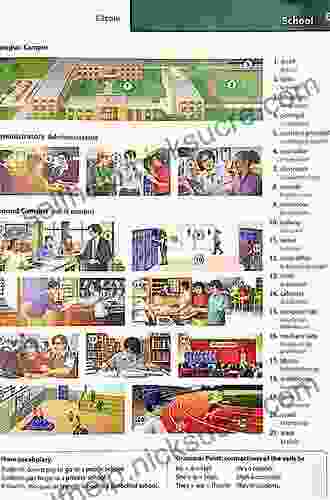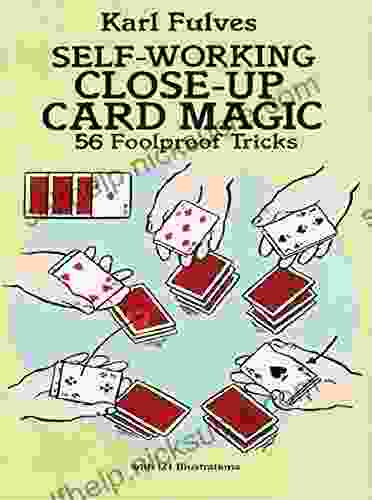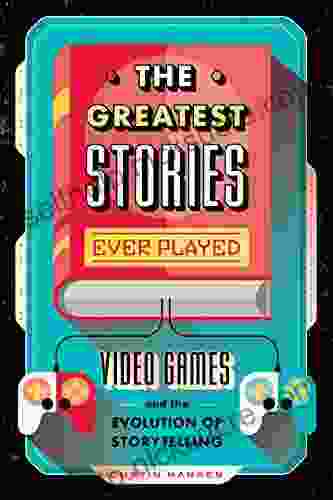Field Guide to Team-Based Assessment: A Comprehensive Guide for Educators

Team-based assessment is an assessment method that involves students working together in groups to complete a task or assignment. This type of assessment can be used to assess a variety of learning outcomes, including students' ability to collaborate, communicate, and problem-solve.
5 out of 5
| Language | : | English |
| File size | : | 5550 KB |
| Text-to-Speech | : | Enabled |
| Screen Reader | : | Supported |
| Enhanced typesetting | : | Enabled |
| Word Wise | : | Enabled |
| Print length | : | 299 pages |
There are many benefits to using team-based assessment in the classroom. First, it can help students to develop important soft skills, such as teamwork, communication, and leadership. Second, it can promote deeper learning by encouraging students to interact with the material in a meaningful way. Third, it can help to create a more engaging and collaborative learning environment.
However, there are also some challenges associated with team-based assessment. One challenge is that it can be difficult to assess individual student contributions to the group project. Another challenge is that some students may be reluctant to participate in group work. Finally, team-based assessment can be time-consuming to implement.
Despite these challenges, team-based assessment can be a valuable tool for educators. When implemented effectively, it can help students to develop important skills and knowledge, and it can promote a more engaged and collaborative learning environment.
Benefits of Team-Based Assessment
- Develops soft skills: Team-based assessment can help students to develop important soft skills, such as teamwork, communication, leadership, and problem-solving. These skills are essential for success in the workplace and in life.
- Promotes deeper learning: Team-based assessment encourages students to interact with the material in a meaningful way. This can lead to deeper learning and a better understanding of the subject matter.
- Creates a more engaging and collaborative learning environment: Team-based assessment can help to create a more engaging and collaborative learning environment. This can motivate students to learn and make the learning process more enjoyable.
Challenges of Team-Based Assessment
- Difficulty in assessing individual student contributions: One challenge of team-based assessment is that it can be difficult to assess individual student contributions to the group project. This can lead to some students being unfairly penalized or rewarded for the work of their teammates.
- Reluctance of students to participate in group work: Another challenge of team-based assessment is that some students may be reluctant to participate in group work. This can be due to a variety of factors, such as shyness, anxiety, or a lack of confidence in their own abilities.
- Time-consuming to implement: Team-based assessment can be time-consuming to implement. This is because it requires careful planning and coordination. Additionally, it can be difficult to find time for students to work together in class.
How to Implement Team-Based Assessment Effectively
There are a number of things that educators can do to implement team-based assessment effectively. First, it is important to carefully plan the assessment task. The task should be challenging but achievable, and it should be clear what students are expected to do. Second, it is important to create clear guidelines for students on how to work together and how their work will be assessed. Third, it is important to provide students with opportunities to practice working together in class. Finally, it is important to provide students with feedback on their work, both as a group and as individuals.
Planning the Assessment Task
When planning the assessment task, it is important to consider the following factors:
- The learning outcomes that you want to assess: What skills and knowledge do you want students to demonstrate?
- The level of difficulty of the task: The task should be challenging but achievable.
- The amount of time available for the task: The task should be able to be completed within the time frame that you have available.
- The resources that students will need: Make sure that students have access to the resources they need to complete the task.
Creating Clear Guidelines for Students
It is important to create clear guidelines for students on how to work together and how their work will be assessed. These guidelines should include the following information:
- The roles and responsibilities of each team member: What is each student expected to do?
- The process for making decisions: How will the team make decisions about how to complete the task?
- The criteria for assessing the work: What criteria will be used to assess the quality of the team's work?
- The consequences for not meeting the expectations: What will happen if students do not meet the expectations outlined in the guidelines?
Providing Opportunities for Students to Practice Working Together
It is important to provide students with opportunities to practice working together in class. This can be done through a variety of activities, such as group discussions, problem-solving exercises, and simulations. Providing students with opportunities to practice working together will help them to develop the skills they need to be successful in team-based assessment.
Providing Students with Feedback
It is important to provide students with feedback on their work, both as a group and as individuals. Feedback should be specific, timely, and actionable. It should help students to understand what they did well and what they need to improve on. Providing students with feedback will help them to learn from their mistakes and improve their performance in future team-based assessments.
Team-based assessment can be a valuable tool for educators when it is implemented effectively. It can help students to develop important skills and knowledge, and it can promote a more engaged and collaborative learning environment. However, it is important to be aware of the challenges associated with team-based assessment and to take steps to mitigate these challenges.
By carefully planning the assessment task, creating clear guidelines for students, providing opportunities for students to practice working together, and providing students with feedback, educators can help to ensure that team-based assessment is a positive and productive experience for all students.
5 out of 5
| Language | : | English |
| File size | : | 5550 KB |
| Text-to-Speech | : | Enabled |
| Screen Reader | : | Supported |
| Enhanced typesetting | : | Enabled |
| Word Wise | : | Enabled |
| Print length | : | 299 pages |
Do you want to contribute by writing guest posts on this blog?
Please contact us and send us a resume of previous articles that you have written.
 Fiction
Fiction Non Fiction
Non Fiction Romance
Romance Mystery
Mystery Thriller
Thriller SciFi
SciFi Fantasy
Fantasy Horror
Horror Biography
Biography Selfhelp
Selfhelp Business
Business History
History Classics
Classics Poetry
Poetry Childrens
Childrens Young Adult
Young Adult Educational
Educational Cooking
Cooking Travel
Travel Lifestyle
Lifestyle Spirituality
Spirituality Health
Health Fitness
Fitness Technology
Technology Science
Science Arts
Arts Crafts
Crafts DIY
DIY Gardening
Gardening Petcare
Petcare Terry Marsh
Terry Marsh Dana Wechsler Linden
Dana Wechsler Linden Beverly Conyers
Beverly Conyers Laura A Roser
Laura A Roser Deborah Miller
Deborah Miller Gabriela Rosa
Gabriela Rosa Deanna Pecaski Mclennan
Deanna Pecaski Mclennan Ken Denmead
Ken Denmead Lawrence A Kane
Lawrence A Kane R Scott Thornton
R Scott Thornton Beatrice Bruteau
Beatrice Bruteau Simon Pridmore
Simon Pridmore Paul Parsons
Paul Parsons Bernd Brunner
Bernd Brunner Blake Boles
Blake Boles Luca Caioli
Luca Caioli Richard Boergers
Richard Boergers Tim Muehlhoff
Tim Muehlhoff Gary D Wale
Gary D Wale Jacqui Letran
Jacqui Letran Rehan Haider
Rehan Haider Robert Simons
Robert Simons Nick Fragel
Nick Fragel T Berry Brazelton
T Berry Brazelton Dk
Dk Nfhs
Nfhs Joe Kelsey
Joe Kelsey Arthur Benjamin
Arthur Benjamin Sarah B Bush
Sarah B Bush Efrain Galeano
Efrain Galeano Marie Rutkoski
Marie Rutkoski Moon Travel Guides
Moon Travel Guides Austa Somvichian Clausen
Austa Somvichian Clausen Bob Smale
Bob Smale Print Replica Kindle Edition
Print Replica Kindle Edition Conrad Anker
Conrad Anker David Code
David Code Izabelle Winter
Izabelle Winter Eric S Raymond
Eric S Raymond Nathan Clark
Nathan Clark Lindsey Philpott
Lindsey Philpott Gillian Bradshaw
Gillian Bradshaw John Quick
John Quick Dougald Macdonald
Dougald Macdonald Susan M Sheridan
Susan M Sheridan David J Miklowitz
David J Miklowitz The Car Crash Detective
The Car Crash Detective Christopher Burris
Christopher Burris Sharon Baranoski
Sharon Baranoski Dusty Phillips
Dusty Phillips Bernie Chowdhury
Bernie Chowdhury Emenwa Global
Emenwa Global Nancy Owens Barnes
Nancy Owens Barnes John Skinner
John Skinner Kay Wills Wyma
Kay Wills Wyma Patricia L Thompson
Patricia L Thompson Pete Whittaker
Pete Whittaker Chris Santella
Chris Santella Vance Packard
Vance Packard Jeffrey Freed
Jeffrey Freed Belinda Smith Sullivan
Belinda Smith Sullivan Bubba Watson
Bubba Watson Dory Willer
Dory Willer Catherine Belknap
Catherine Belknap Lizzie Lane
Lizzie Lane Emily Whaley
Emily Whaley Marc Kery
Marc Kery Stephen Morris
Stephen Morris Patrisia Gonzales
Patrisia Gonzales Colin Towell
Colin Towell Augustus M Walton
Augustus M Walton Ron Dalby
Ron Dalby Chloe Lukasiak
Chloe Lukasiak Lisa Fain
Lisa Fain Gabriel Gambetta
Gabriel Gambetta Rajeev Lal
Rajeev Lal Mark Coeckelbergh
Mark Coeckelbergh Drew Harris
Drew Harris Mandy Khoshnevisan
Mandy Khoshnevisan Darryl Cunningham
Darryl Cunningham Lara Lillibridge
Lara Lillibridge Vivian Sandau
Vivian Sandau Family Traditions Publishing
Family Traditions Publishing Babu The Panda
Babu The Panda Madeleine Roux
Madeleine Roux Michael Grimm
Michael Grimm Debora Rasio
Debora Rasio Mike Mastracci
Mike Mastracci Paul Pilkington
Paul Pilkington Lore M Dickey
Lore M Dickey Larry Dane Brimner
Larry Dane Brimner Janet Gurtler
Janet Gurtler Richard Strozzi Heckler
Richard Strozzi Heckler J A Baker
J A Baker Janis B Meredith
Janis B Meredith Rick Burgess
Rick Burgess Terasa Cooley
Terasa Cooley John Sharp
John Sharp Brigid Kemmerer
Brigid Kemmerer James Nestor
James Nestor Simon Askey
Simon Askey Patricia Stacey
Patricia Stacey Dk Eyewitness
Dk Eyewitness Aspen Matis
Aspen Matis Alan Vermilye
Alan Vermilye Dr Jerisa Berry
Dr Jerisa Berry Denny Emerson
Denny Emerson Ori Hofmekler
Ori Hofmekler Judith Z Kallenbach
Judith Z Kallenbach Nic Stone
Nic Stone Paul Bodine
Paul Bodine Peter Bronski
Peter Bronski Aubrey Hargis
Aubrey Hargis Roy Benaroch Md
Roy Benaroch Md Carl Safina
Carl Safina Brent Runyon
Brent Runyon Vb Leghorn
Vb Leghorn Harry Bauld
Harry Bauld Elizabeth M Ward
Elizabeth M Ward Heather Heying
Heather Heying Autumn Carpenter
Autumn Carpenter Dima Zales
Dima Zales Kenneth P Miller
Kenneth P Miller Carol Potter
Carol Potter Clive Finlayson
Clive Finlayson Greg Lavern
Greg Lavern Eunice Pennington
Eunice Pennington Matt Forbeck
Matt Forbeck Sonia Mainstone Cotton
Sonia Mainstone Cotton Hugh Acheson
Hugh Acheson Darja Wagner Ph D
Darja Wagner Ph D Heather E Schwartz
Heather E Schwartz Renzo Gracie
Renzo Gracie Geoffrey Budworth
Geoffrey Budworth George Orwell
George Orwell David Acheson
David Acheson Jesus Salcedo
Jesus Salcedo Tomasz Witkowski
Tomasz Witkowski Peggy Kaye
Peggy Kaye Proprietary Edition Kindle Edition
Proprietary Edition Kindle Edition Picabo Street
Picabo Street Mark Baker
Mark Baker Cora Seton
Cora Seton Nina W Brown
Nina W Brown Karen Whitley Bell
Karen Whitley Bell Morgan Murphy
Morgan Murphy Ervin Laszlo
Ervin Laszlo Dan Morse
Dan Morse M D William W Forgey
M D William W Forgey Martin Liebscher
Martin Liebscher Justine Kerfoot
Justine Kerfoot Barbara Oakley Phd
Barbara Oakley Phd Athena P Kourtis
Athena P Kourtis Jerome D Smalls
Jerome D Smalls Warren W Wiersbe
Warren W Wiersbe Rachel Mitchell
Rachel Mitchell Zhi Gang Sha
Zhi Gang Sha Johny Pitts
Johny Pitts Karen Berger
Karen Berger Kevin Kelly
Kevin Kelly Audrey Sutherland
Audrey Sutherland William Schoolcraft
William Schoolcraft Jim Holt
Jim Holt Beverly Bell
Beverly Bell Brian A Hall
Brian A Hall Joe Hutto
Joe Hutto Fred Mitchell
Fred Mitchell Nancy Friday
Nancy Friday James Deetz
James Deetz Larry Olmsted
Larry Olmsted Huw Price
Huw Price Babatunde Peter
Babatunde Peter Spike Walker
Spike Walker Temple Bailey
Temple Bailey Ken Fry
Ken Fry Augustine Wetta
Augustine Wetta Brent Dykes
Brent Dykes Robert M Steward
Robert M Steward Audre Lorde
Audre Lorde Tara Sim
Tara Sim Ayesha Ratnayake
Ayesha Ratnayake Keith Mcnulty
Keith Mcnulty Tom Rea
Tom Rea E Randolph Richards
E Randolph Richards Lisa Gache
Lisa Gache Laurie Kennedy Malone
Laurie Kennedy Malone Kilian Jornet
Kilian Jornet Conrad Goeringer
Conrad Goeringer Mike Doyle
Mike Doyle Siddhartha Mukherjee
Siddhartha Mukherjee Mami Wata
Mami Wata Gemma Mccrae
Gemma Mccrae Paul Oliver
Paul Oliver Larry Hart
Larry Hart Fred Alan Wolf
Fred Alan Wolf Maureen Connolly
Maureen Connolly Joe Ryder
Joe Ryder Seth Kantner
Seth Kantner William Woys Weaver
William Woys Weaver Deborah J Rumsey
Deborah J Rumsey Spanked Teen
Spanked Teen Jennifer Love
Jennifer Love Marc D Lewis
Marc D Lewis Robert W Sullivan Iv
Robert W Sullivan Iv Edward Lee
Edward Lee Deanna Roy
Deanna Roy Don J Sharpsteen
Don J Sharpsteen Ethan Sawyer
Ethan Sawyer James Ori
James Ori Daria Blackwell
Daria Blackwell Sadie Keller
Sadie Keller R F Egerton
R F Egerton John Gray
John Gray Kjell Erik Rudestam
Kjell Erik Rudestam Bradley Stone
Bradley Stone Matt Wallaert
Matt Wallaert Avery Faigenbaum
Avery Faigenbaum Mia Baxter
Mia Baxter Jeff Vandermeer
Jeff Vandermeer Deborah Hughes Hallett
Deborah Hughes Hallett Joe Friel
Joe Friel Patrick Hamill
Patrick Hamill Richard H Immerman
Richard H Immerman Richard Miles
Richard Miles Atlas Kane
Atlas Kane Mike Eruzione
Mike Eruzione Gareth Loy
Gareth Loy James Garbarino
James Garbarino Mike Kim
Mike Kim Sam Pathy
Sam Pathy Tony Clunn
Tony Clunn Madelynne Diness Sheehan
Madelynne Diness Sheehan Sarah Boslaugh
Sarah Boslaugh Harlan Coben
Harlan Coben Peter Levin
Peter Levin Tracy Deonn
Tracy Deonn Maya Angelou
Maya Angelou Lamis Chebbi
Lamis Chebbi Kathy Jackson
Kathy Jackson Sandy Hall
Sandy Hall S Ali Myers
S Ali Myers Leslie T Chang
Leslie T Chang Charles D Garvin
Charles D Garvin Julia Albu
Julia Albu Brooke Dojny
Brooke Dojny B F Skinner
B F Skinner Eric Jones
Eric Jones Antoni Porowski
Antoni Porowski Greg B Smith
Greg B Smith Ernestine Gilbreth Carey
Ernestine Gilbreth Carey Kimberly Willis
Kimberly Willis Mary Jayne Baker
Mary Jayne Baker Joanne Simon Walters
Joanne Simon Walters Alan Lightman
Alan Lightman Bruno Barnhart
Bruno Barnhart Andy Mcilree
Andy Mcilree Audrey Coulthurst
Audrey Coulthurst James Ladyman
James Ladyman Lew Freedman
Lew Freedman Jens Voigt
Jens Voigt Tom Humphries
Tom Humphries Loren W Christensen
Loren W Christensen Lori Foster
Lori Foster Brian Christian
Brian Christian Foster Provost
Foster Provost Sharon Slater
Sharon Slater Maria Montessori
Maria Montessori Jerry Scott
Jerry Scott Blake Dresden
Blake Dresden Hillary Davis
Hillary Davis Danny Staple
Danny Staple Laura Riley
Laura Riley Kindle Edition
Kindle Edition Deborah T Goldberg
Deborah T Goldberg Ayn Rand
Ayn Rand Steven Rinella
Steven Rinella Leigh Pearson
Leigh Pearson Carly Gelsinger
Carly Gelsinger Casey Barber
Casey Barber Linda West
Linda West Carol Ann Rinzler
Carol Ann Rinzler Greg Gatz
Greg Gatz Timothy J Jorgensen
Timothy J Jorgensen Fran Zimniuch
Fran Zimniuch Shelly Rainforth Collins
Shelly Rainforth Collins Linda Fairley
Linda Fairley Robert T Clemen
Robert T Clemen Inga Aksamit
Inga Aksamit Staff Of The Harvard Crimson
Staff Of The Harvard Crimson Linda Wong
Linda Wong Katie Hoff
Katie Hoff Qukids
Qukids Susan F Paterno
Susan F Paterno Patrick Holford
Patrick Holford Cece Winans
Cece Winans Avinash K Dixit
Avinash K Dixit Kathy Pike
Kathy Pike Jim Fay
Jim Fay Nsca National Strength Conditioning Association
Nsca National Strength Conditioning Association Tara Dixon Engel
Tara Dixon Engel Patty Hahne
Patty Hahne Audrey Grey
Audrey Grey Thane K Pratt
Thane K Pratt Johnette Howard
Johnette Howard E W Bullinger
E W Bullinger Joe Baird
Joe Baird Esther M Toddler
Esther M Toddler Roger Lajoie
Roger Lajoie George J Hademenos
George J Hademenos Lyn Millner
Lyn Millner Martha Raile Alligood
Martha Raile Alligood John Littleford
John Littleford Leonard Susskind
Leonard Susskind Claire Nance
Claire Nance John Updike
John Updike Barbara Blitzer
Barbara Blitzer Richard Ferber
Richard Ferber Cat Coluccio
Cat Coluccio Shepherd Mead
Shepherd Mead Uta C Merzbach
Uta C Merzbach Shelley Johnson
Shelley Johnson Kaleb Dahlgren
Kaleb Dahlgren Rufus Stephens
Rufus Stephens Asiphile Qulu
Asiphile Qulu Kira Breed Wrisley
Kira Breed Wrisley Jessica Nordell
Jessica Nordell Lucy Hopping
Lucy Hopping Norman Ollestad
Norman Ollestad David Shoalts
David Shoalts Philip Clayton
Philip Clayton Peter Gieler
Peter Gieler Eitan Bar
Eitan Bar Scott Mactavish
Scott Mactavish Robert Chuckrow
Robert Chuckrow Jessica Nabongo
Jessica Nabongo Catherine Rodgers
Catherine Rodgers Casey Schreiner
Casey Schreiner Kathleen M Eisenhardt
Kathleen M Eisenhardt Laurie Katz
Laurie Katz E Paul Zehr
E Paul Zehr John Hiker
John Hiker Miriam Erick
Miriam Erick Greta Eskridge
Greta Eskridge Ben Riggs
Ben Riggs Gary Webster
Gary Webster Sara Zarr
Sara Zarr John Misha Petkevich
John Misha Petkevich Gaby Melian
Gaby Melian Steve Oakes
Steve Oakes Steve Colgate
Steve Colgate Adam Parkinson
Adam Parkinson Ken Phillips
Ken Phillips James Feess
James Feess Liz Carmack
Liz Carmack T J Emerson
T J Emerson John Connor
John Connor Tracey L Moore
Tracey L Moore Aubre Andrus
Aubre Andrus Fennel Hudson
Fennel Hudson Don Casey
Don Casey Collins Dictionaries
Collins Dictionaries Jonothan Page
Jonothan Page Bill Thorness
Bill Thorness Paul Tukey
Paul Tukey Hourly History
Hourly History Ashley Rhodes Courter
Ashley Rhodes Courter Jayme Adelson Goldstein
Jayme Adelson Goldstein Carolyn Wyman
Carolyn Wyman Suzanne Jurmain
Suzanne Jurmain Martin Rees
Martin Rees Tarik Unal
Tarik Unal Sofia Price
Sofia Price Jonathan Cane
Jonathan Cane Mohamed F El Hewie
Mohamed F El Hewie Pat Mora
Pat Mora Gerald Paul Clifford
Gerald Paul Clifford Tori Bortman
Tori Bortman Gabrielle Bossis
Gabrielle Bossis Mark Gardener
Mark Gardener Robert E Howard
Robert E Howard Brett Ortler
Brett Ortler Scott Turansky
Scott Turansky Steven M Bragg
Steven M Bragg Jessica S Olson
Jessica S Olson David Landis
David Landis Asia Citro
Asia Citro Vicki Hoefle
Vicki Hoefle Michael Paul
Michael Paul Rudy Sanchez
Rudy Sanchez C M Gray
C M Gray Kathy Hirsh Pasek
Kathy Hirsh Pasek Stan Fischler
Stan Fischler Stewart M Green
Stewart M Green Jim Collins
Jim Collins Karl Fulves
Karl Fulves John Austin
John Austin Steve Bisheff
Steve Bisheff Timo Holmquist
Timo Holmquist Levison Wood
Levison Wood Nita Sweeney
Nita Sweeney Karen Skerrett
Karen Skerrett Ellyn Sanna
Ellyn Sanna Bob Weeks
Bob Weeks Larry Gonick
Larry Gonick J C Pater
J C Pater Hilary Scarlett
Hilary Scarlett Brandon Sneed
Brandon Sneed Samantha Bongeka Nqoko
Samantha Bongeka Nqoko Mercedes Lackey
Mercedes Lackey Tony Nester
Tony Nester Deborah Falaye
Deborah Falaye Dan Blanchard
Dan Blanchard Cynthia Hand
Cynthia Hand Austin Ruse
Austin Ruse Lois Lowry
Lois Lowry Dustin Hansen
Dustin Hansen Wilfrid Jonson
Wilfrid Jonson Dean Karnazes
Dean Karnazes Mark Parman
Mark Parman David Dalglish
David Dalglish Yang Jwing Ming
Yang Jwing Ming Sanya Richards Ross
Sanya Richards Ross M Prefontaine
M Prefontaine Miriam Manela
Miriam Manela G R S Mead
G R S Mead Conor Sullivan
Conor Sullivan Sam Quek
Sam Quek Kristin Fontichiaro
Kristin Fontichiaro Gail M Nelson
Gail M Nelson Samir Okasha
Samir Okasha Penny Simkin
Penny Simkin Quick Reads
Quick Reads Katie Cotugno
Katie Cotugno Jeff Szuhay
Jeff Szuhay Ed Jaworowski
Ed Jaworowski Martins Zaumanis
Martins Zaumanis Leonard Mlodinow
Leonard Mlodinow Ethan Gallogly
Ethan Gallogly Darren Palmer
Darren Palmer Todd Mikkelsen
Todd Mikkelsen Randi Kreger
Randi Kreger Ben Sasse
Ben Sasse John S Ahlquist
John S Ahlquist Jessica Seinfeld
Jessica Seinfeld Cornelia Pelzer Elwood
Cornelia Pelzer Elwood Dave Ramsey
Dave Ramsey John D Mccann
John D Mccann Fred Provenza
Fred Provenza John Gierach
John Gierach Chris Burkard
Chris Burkard Jermaine Marshall
Jermaine Marshall Manly P Hall
Manly P Hall Lise Eliot
Lise Eliot Steven Brill
Steven Brill Reinhard Bonnke
Reinhard Bonnke N West Moss
N West Moss Aylette Jenness
Aylette Jenness Vasily Mahanenko
Vasily Mahanenko Tiffany Wasson
Tiffany Wasson Colleen Hoover
Colleen Hoover Kay Harris Kriegsman
Kay Harris Kriegsman Robert Warden
Robert Warden Don Orwell
Don Orwell Lilith Dorsey
Lilith Dorsey Jeannie Burlowski
Jeannie Burlowski Kevin Bales
Kevin Bales Ryan Sleeper
Ryan Sleeper Prayer M Madueke
Prayer M Madueke Duncan J Watts
Duncan J Watts Linda Dobson
Linda Dobson Stephanie Donaldson Pressman
Stephanie Donaldson Pressman Barry Cunliffe
Barry Cunliffe Daffodil Campbell
Daffodil Campbell William M Kelso
William M Kelso Graham Frankel
Graham Frankel Yogi Ramacharaka
Yogi Ramacharaka Christine Ann Lawson
Christine Ann Lawson Florin Grancea
Florin Grancea Charles L Thompson
Charles L Thompson Robert M Bramson
Robert M Bramson Rena Ejiogu
Rena Ejiogu Larry Miller
Larry Miller Smadar Lavie
Smadar Lavie John Swinton
John Swinton Pedro G Ferreira
Pedro G Ferreira
Light bulbAdvertise smarter! Our strategic ad space ensures maximum exposure. Reserve your spot today!

 Michael SimmonsOxford Picture Dictionary English French Edition: Your Visual Gateway to...
Michael SimmonsOxford Picture Dictionary English French Edition: Your Visual Gateway to...
 Ernest HemingwayUnveiling the Mystery: A Comprehensive Analysis of Murder on Montellio by...
Ernest HemingwayUnveiling the Mystery: A Comprehensive Analysis of Murder on Montellio by... William WordsworthFollow ·4.1k
William WordsworthFollow ·4.1k Norman ButlerFollow ·19.6k
Norman ButlerFollow ·19.6k Isaac AsimovFollow ·7.1k
Isaac AsimovFollow ·7.1k Edgar Allan PoeFollow ·4.7k
Edgar Allan PoeFollow ·4.7k Ike BellFollow ·9k
Ike BellFollow ·9k Pablo NerudaFollow ·17.7k
Pablo NerudaFollow ·17.7k Donald WardFollow ·9k
Donald WardFollow ·9k Shane BlairFollow ·18.3k
Shane BlairFollow ·18.3k

 Jett Powell
Jett PowellHow to Choose a Church That's Right for You
Choosing a church...

 Bryan Gray
Bryan GrayThe Unbelievable World of Self-Working Close Up Card...
Imagine having...

 Junot Díaz
Junot DíazUnveiling the Enchanting Old City Laneways and Diavatika:...
Crete, the largest of...

 Jamison Cox
Jamison CoxA Year in the American Wild: Recreating a Feast from...
For one year, I lived off...

 Holden Bell
Holden BellArchaeology of Early American Life: An Exploration of...
The archaeology...

 Rodney Parker
Rodney ParkerRegain Your Fertility By Reversing Insulin Resistance,...
If you're struggling to conceive, you may be...
5 out of 5
| Language | : | English |
| File size | : | 5550 KB |
| Text-to-Speech | : | Enabled |
| Screen Reader | : | Supported |
| Enhanced typesetting | : | Enabled |
| Word Wise | : | Enabled |
| Print length | : | 299 pages |








